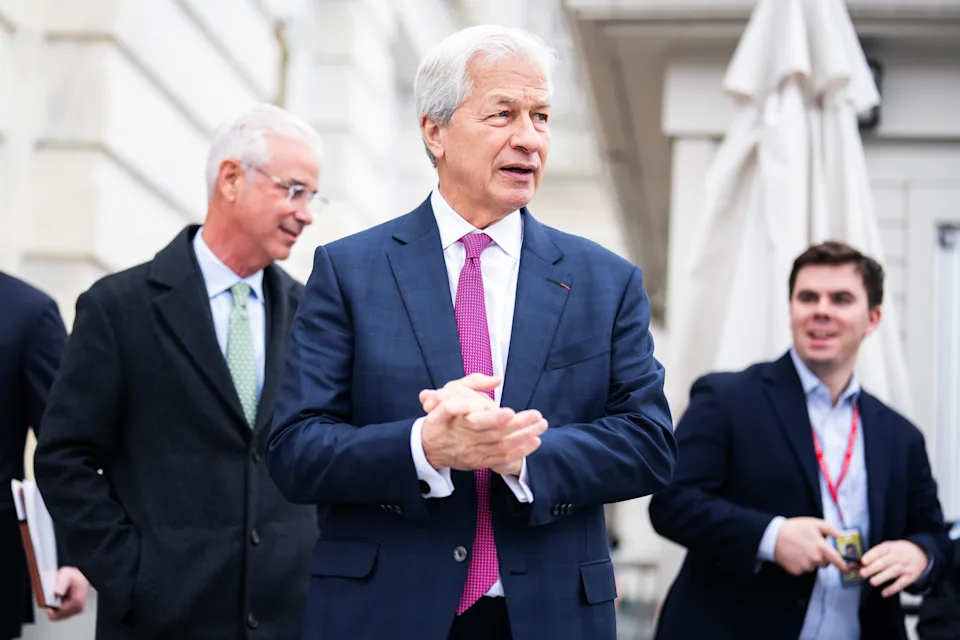The stock market will enter the second full week of the government shutdown following a tariff-driven selloff Friday.
At the closing bell, the S&P 500 (^GSPC), tech-heavy Nasdaq Composite (^IXIC), and small cap-focused Russell 2000 (^RUT) all saw their worst daily performances since April 10, just a week after the Trump administration released its initial “Liberation Day” tariff proposals. The Dow Jones Industrial Average (^DJI) notched its worst performance since May.
Gold (GC=F), on the other hand, had its eighth straight week of gains, continuing the biggest precious metals bull rally in decades.
In the week ahead, the market will continue to fly blind on several key points of economic data that would normally publish if not for the gridlock in Washington. Figures ranging from import prices and retail sales to hourly earnings and jobless claims are likely to be missing from the calendar.
Given that the Federal Open Market Committee enters the blackout period for its October meeting starting on Saturday, Oct. 18, if Congress gets through Friday with no deal to re-open the government, the Fed will enter the blackout missing a ream of economic data.
Elsewhere in the corporate world, it’s set to be a big week of earnings as third quarter season gets properly underway. Results from the big banks such as JP Morgan Chase (JPM), Goldman Sachs (GS), and Wells Fargo (WFC) will lead the week. Outside of the financial services sector, big names to watch include Johnson & Johnson (JNJ) and Domino’s (DPZ) on Tuesday and Taiwan Semiconductor Manufacturing (TSM) on Thursday.
‘De minimis’ shutdown effect
It’s not always clear how news out of Washington will impact stocks’ direction. Friday’s market rout shows that Trump’s tariff threats still matter. Meanwhile, the government shutdown seems to so far have had muted impact on the major indices, with Deutsche Bank calling the shutdown’s market effect “de minimis.”
In the past, the major credit rating agencies have noted that a government shutdown like the one currently in effect would reflect negatively on the US government bond rating. Given that the rating agencies have already downgraded government bonds in the last few years on the basis of political instability, said Jeff Buchbinder, chief equity strategist at broker-dealer LPL Financial, this outcome is essentially “off the table.”
In the shutdown negotiations, healthcare is set to be the market sector with the most to gain or lose this time around. The primary battle in Congress keeping Democrats and Republicans from reaching a funding deal is over Affordable Care Act subsidies, set to expire at the end of the year — whether to spend more than $1 trillion to extend them, as the Democrats are seeking, or to let them expire, as Republicans are looking for.
For major healthcare providers like UnitedHealth (UNH) and Humana (HUM), an end to the subsidies could mean a hole in their customer base if millions of Americans unenroll and many more choose not to utilize a plan at all. For providers like Centene (CNC), which focus on ACA plans, a subsidy sunset may signal a large incoming hit to their margins.
“A rare earth Renaissance is underway in the West,” Ryan Castilloux, the founder and managing director of rare earth research firm Adamas Intelligence, said at a recent conference focus on the minerals.
The share price performance is the knock-on effect of a geopolitical fight that has heated up between the US and China throughout the summer. As China, which mines much of the global share of rare earth minerals and controls more than 90% of the world’s processing capability, has clamped down on exports out of the materials out of the country, largely beginning in April, the Trump administration has looked for ways to put pressure on Beijing.
When the Department of Defense announced that it was taking a stake in MP Materials, part of the deal terms was a requirement for the company to cease exporting any rare earths to China. Government stakes in Lithium Americas Corp (LAC) and Trilogy Metals have signaled to Beijing that Trump is intent on moving the US off reliance on China.

